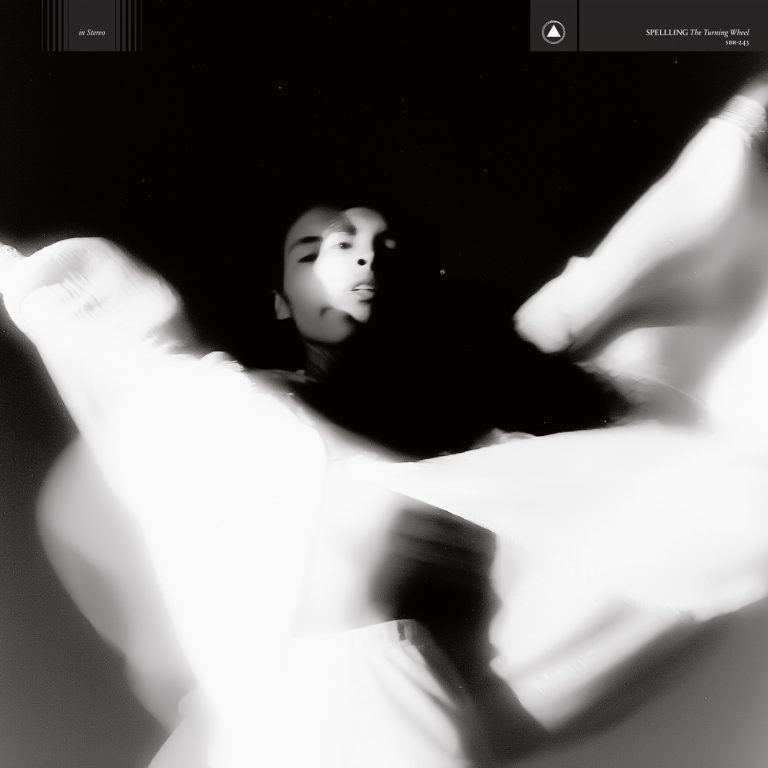In four years, SPELLLING has come a long way. What began, with 2017’s Pantheon of Me, as a bleary alternative R&B project has now yielded The Turning Wheel, a record that casts Tia Cabral as a vaudevillian Minnie Riperton. Separated onto two sides, ‘Above’, populated by brighter, more earthbound pop songs, and ‘Below’, all UFO landings and nighttime horrorfests, The Turning Wheel is an ambitious double record. And yet it all makes sense in the hands of Tia Cabral, who grows more confident with each release, and has leveled-up her songwriting and arranging chops just as rapidly.
Cabral has made a strange album here. It’s mystical, the way those early Kate Bush albums are mystical. Very 70s synths sit alluringly next to violins and plucky bass carves out a groove for horns to punctuate. There’s a high level of camp all around, a difficult affectation to capture in music. While listening to The Turning Wheel, it’s easy to imagine Cabral performing them in a ballgown, prancing around a hand-painted castle set like she’s on Shelly Duvall’s Faerie Tale Theatre. Where there was once an overtly spooky vibe to her music, there’s now more of an undercurrent.
Slap as many abstract adjectives and kitschy references you want on it, you’re not going to pin The Turning Wheel down. Its ineffability can be its greatest strength. What exactly is happening in opener “Little Deer”? The groove and horns suggest the Jackson 5, a kind of classic and naive soul that is still somehow unnerving. Maybe it’s because the chords never quite resolve, eliding any sense of relief. The lyrics speak in metaphors about a childhood love, although the lines “tender lovers of the earth / turn us back into the dust” would imply something such more sinister occurring underneath. Cabral doesn’t ever explain that, and suddenly the ineffability is a little less welcome.
The ‘Below’ half is where The Turning Wheel gets down to some darkness, which is exactly what Cabral excels at. Synths that Clan of Xymox would feel at home in abound, dancing around fires in the forest like proper witches. They’re highly textured, as if they’re full of dents. Put to good use in songs like “Queen of Wands”, this backbone provides a steady base for Cabral to weave melodies that could conjure a spirit and unspool stories about healing and grief. “Legacy” rides a mellow drum rhythm that’s beachy in the way The Lost Boys is beachy: sand in your Dr. Martens, sun lotion on your leather jacket. It’s great.
But it’s the song that splits the two sides that really is Cabral’s peak here. “Boys at School” is a seven minute ballad, building into a heavy climax of despair. It begins with piano and Rocky Horror synths, setting the stage for a tale of young love and mistreatment. “I hate the boys at school / They never play the rules / The body is the law” Cabral sings, drawing out each word with a breathy melodrama fitting for a tale of teenage heartbreak. What exactly the song is about remains just out of reach. While “Boys At School” suggests trauma and sexual violence, there is no moment solidifying the topic at hand.
This is perhaps the only shortcoming of The Turning Wheel; consistently vague lyrics create a distance between the listener and Cabral, when we should be living in the palm of her hand. Camp is most effective when its specific in all its affect and bad taste. Often, all that we get from these songs is a mood and nothing more.

